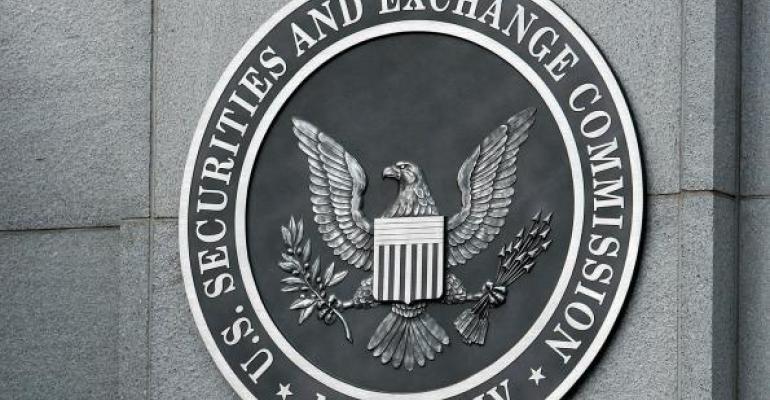By Ben Bain and Silla Brush
(Bloomberg) --The U.S. Securities and Exchange Commission will blunt the impact of new European financial rules on Wall Street after American brokerages warned that the changes would threaten their investment research businesses.
In a statement Thursday, the SEC formally assured the brokerage industry that for 30 months it won’t take action against firms that break out the cost of market analysis for clients subject to European Union rules taking effect in January. The EU will require that brokers charge separately for research, creating a conflict with U.S. regulations.
“Today’s no-action relief was designed with input from a range of market participants to reduce confusion and operational difficulties that might arise in the transition to MiFID II’s research provisions,” SEC Chairman Jay Clayton said in the agency’s statement. “These steps should preserve investor access to research in the near term, during which the commission can assess the need for any further action.”
At issue is Europe’s coming ban of a practice that has been routine at global banks for decades: Issuing fund managers one bill for everything from executing trades to analyzing stocks and bonds. Europe’s goal is to give investors more transparency into how much they pay for specific services, while incentivizing brokers to produce higher-quality research.
“We welcome the decision of the staff of the U.S. Securities and Exchange Commission to simultaneously agree to relief for U.S. brokers supplying research to EU firms,” Valdis Dombrovskis, the EU’s financial-services policy chief said in a statement Thursday. “With the issued guidance EU firms will have greater clarity on how to deal with non-EU brokers that provide research.”
Major Victory
The decision represents a major victory for U.S. brokerages scrambling to prepare for the EU’s revised Markets in Financial Instruments Directive, or MiFID II. The firms said that they were concerned that selling research to European clients could have forced them to register as investment advisers, adding costs and leading to stricter SEC oversight.
The SEC will seek public comment on the impact of the new EU rules. The temporary relief will give agency staff time to monitor how businesses practices around research are evolving after the rules take effect, the SEC said.
Financial-industry trade groups have spent months lobbying the SEC for help in dealing with MiFID II. The relief announced on Thursday largely reflects the wishes of the Securities Industry and Financial Markets Association, which represents brokers and asset managers.
Mutual fund companies can continue to aggregate the trades they make across their various investment funds while complying with the EU research requirements, the SEC said. The Investment Company Institute had been asking for that relief.
The agency also said that money managers complying with the new rules on separate payments will still be able to use client money to pay for brokerage services and research in the U.S.
To contact the reporters on this story: Ben Bain in Washington at [email protected] ;Silla Brush in London at [email protected] To contact the editors responsible for this story: Jesse Westbrook at [email protected] Gregory Mott





